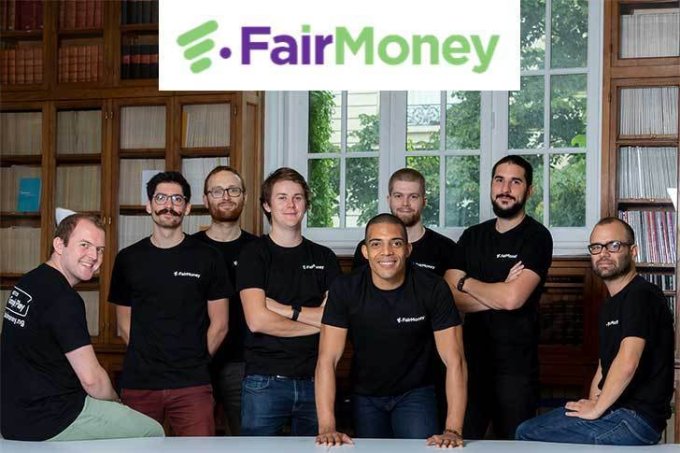Nigerian Fintech Startup FairMoney Raises $5.39M In Series 1 Commercial Paper Issuance
MyCredit Investments Limited, operating as FairMoney Nigeria, is thrilled to announce the successful debut of its N2.5 billion ($5.39M) Series 1 Commercial Paper (“CP”) Issuance. The CP programme received tremendous interest from qualified institutional investors, with total demand exceeding the issue size by almost 100%.
The CPs were issued with a 270-day tenor and offered investors a yield of 16.00%. This strong response to the Offer demonstrates the investors’ confidence in FairMoney Nigeria’s operations and strategic direction.
The Programme and subsequent CP Issuance mark a significant milestone for FairMoney, providing the company with continuous access to funding from the dynamic debt capital market. The achievement highlights FairMoney’s commitment to sustainable growth and meeting the financial needs of its diverse customer base.
read also Ugandan Fintech Startup Zofi Cash Secures $1M in Funding to Revolutionize Earned-Wage Access
The CP Issuance aims to support the company’s short-term liquidity needs and finance the growth of its loan book. Financial advisory services for the transaction were provided by United Capital Plc, Renaissance Capital Africa, FBNQuest Merchant Bank, and Stanbic IBTC Capital Limited. This collaboration with renowned institutions showcases the widespread recognition and support for FairMoney’s innovative financial instruments and the company’s dedication to building a robust funding base in Nigeria.

Reasons for Investment:
Investors were drawn to FairMoney Nigeria’s CP Issuance for several key reasons:
- Company Performance: The strong demand for the CPs reflects investors’ confidence in FairMoney’s operations and strategic direction. The company has consistently delivered on its financial obligations to a diverse range of investors, fostering trust within the investing community.
- Credit Ratings: FairMoney Nigeria recently received double investment grade credit ratings from GCR and DataPro. This creditworthiness enhances the company’s appeal to investors and demonstrates its financial stability.
- Market Potential: FairMoney aims to become the financial home for the underbanked individuals in emerging markets, targeting the next 2 billion people who lack access to adequate financial services. This ambitious vision presents significant growth potential, attracting investors seeking exposure to underserved markets.
- Innovative Financial Instruments: FairMoney’s innovative approach to providing access to quality finance products is gaining recognition among investors. The CP Issuance establishes the company as a category leader in debt instruments, offering investors a new and attractive asset class.
A commercial paper issuance is the process of issuing short-term debt securities called commercial papers to raise funds from investors. These unsecured promissory notes are offered at a discount to their face value and have a specified maturity date. Institutional investors participate in these issuances, attracted by their low risk, short-term nature, and higher yields. The funds raised through commercial paper issuances are used by the issuing entity to fulfill short-term liquidity needs and meet immediate financial obligations. Overall, commercial paper issuances provide a quick and efficient way for companies and institutions to access short-term funding from the investor market.
read also Mastercard Partners NAPS to Drive Innovation Across Morocco’s Digital Payments Landscape
A Look at FairMoney Nigeria
FairMoney Nigeria was founded in 2017 with a mission to increase its portfolio while delivering services to financially excluded and underserved individuals. The company aims to serve as the financial home for the next 2 billion underbanked people in emerging markets.
The co-founders of FairMoney Nigeria include Laurin Hainy, who serves as the CEO and Director General, and Henry Obiekea, who serves as the Managing Director. Since its inception, FairMoney has expanded its operations beyond Nigeria and extended to India in 2019.
FairMoney primarily operates in Nigeria and India, targeting individuals who lack access to traditional banking services. The company’s focus is on delivering quality finance products to the financially excluded and underserved population.
The recent success of FairMoney Nigeria’s CP Issuance highlights its commitment to sustainable growth, financial inclusion, and meeting the diverse financial needs of its customer base.
Charles Rapulu Udoh

Charles Rapulu Udoh is a Lagos-based lawyer, who has several years of experience working in Africa’s burgeoning tech startup industry. He has closed multi-million dollar deals bordering on venture capital, private equity, intellectual property (trademark, patent or design, etc.), mergers and acquisitions, in countries such as in the Delaware, New York, UK, Singapore, British Virgin Islands, South Africa, Nigeria etc. He’s also a corporate governance and cross-border data privacy and tax expert.
As an award-winning writer and researcher, he is passionate about telling the African startup story, and is one of the continent’s pioneers in this regard












